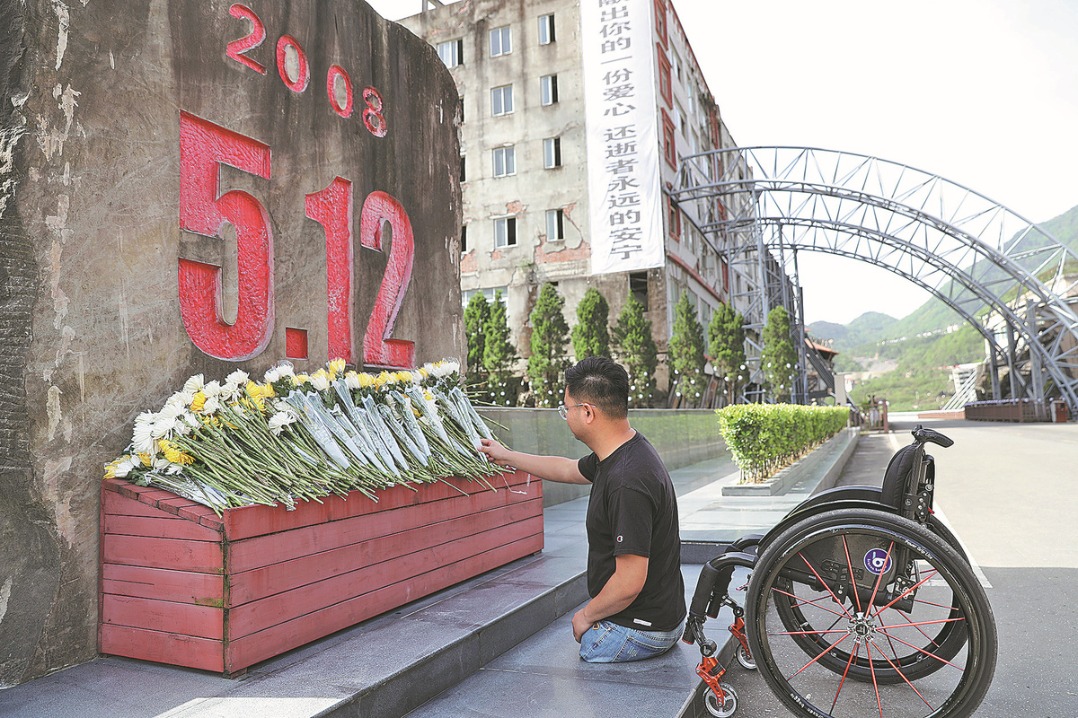The decline of the Western model and the rise of the Global South


MA XUEJING/CHINA DAILY
The global challenges humanity faces today show that the Western development model has had its day
The Western world, including Japan, has a strong tendency to view the unity and development of the BRICS countries and the Global South as a challenge to the existing international order and system. It is based on the viewpoint of Western developed countries when considering the history of global development in modern times, and it overlooks the reality that the political-economic systems originating from Western Europe are experiencing dysfunction. If we examine such a perspective within the context of world history, the Global South's efforts and progress will be seen differently. That is, in response to the development challenges faced by the world, including the Western developed countries that have led modernization, the Global South countries are not only "sincerely" addressing these issues but also forging brand-new paths.
The modernization originating from Western Europe has brought unprecedented prosperity. Particularly after World War II, both Western Europe and Japan experienced what was regarded as miraculous economic growth. However, it must be pointed out that such a miracle was achieved, to a great extent, through the military or economic colonization of some Global South countries. Moreover, developed countries themselves have faced unforeseen challenges from the early 1970s.
The global economic recession triggered by the oil crisis made people realize that high economic growth won't last indefinitely. People began to notice environmental issues such as air and water pollution, which had been produced by economic growth and not been dealt with. In addition, the recession in some developed countries also led to a reduction in development aid to the Global South, further widening the North-South gap. Within the Global South itself, the gap between resource-rich countries and non-resource-rich countries, emerging industrial and nonindustrial nations, or the South-South gap, also widened.
Western countries, despite some adjustments in reality, still can't find any other new approach for addressing challenges brought about by Western modernization.
Developed countries, especially the G7 nations, prioritize economic and financial globalization to extend the life span of their development model, rather than addressing the global crises their development model has caused. The result of permeating market fundamentalism into every corner of the world is that while multinational corporations from the developed countries reap huge profits, they also exacerbate economic disparities both within countries and globally. The progress of globalization in the late 1990s coincided with a period of significant economic growth of some Global South countries, led by China.
The Global South has not been indifferent to the global economic disparities and environmental damage that results from the developed countries' development model. They have been actively addressing these global issues with full effort, seeking a new model for economic growth while addressing environmental issues and wealth disparities.
In other words, the efforts of developing countries, which have been in a subordinate position during the Western modernization, are not aimed at reversing their backward status while maintaining the development model established by the West. They are confronting global challenges that neither the advantaged nor the disadvantaged parties in such a structure can avoid and exploring a new development pattern.
China is one of the countries actively taking measures to tackle the aforementioned predicaments. The Chinese path to modernization is aimed at overcoming and innovatively solving the global challenges brought about by Western modernization.
The Global South that has made tremendous sacrifices to the Western development model has begun the exploration of a new pattern needed by many developing countries and regions. If developed countries can work with them, they will surely drive human progress.
At the 31st APEC Economic Leaders' Meeting in November, Chinese President Xi Jinping reiterated: "China welcomes all parties to continue riding the 'express train' of its development and grow together with the Chinese economy so that we can all contribute to the modernization of all countries featuring peaceful development, mutually beneficial cooperation and common prosperity." This statement should be viewed in such a broader context.
However, Western developed countries have always regarded the initiatives proposed and efforts made by China and other Global South countries as "challenges" or "threats".
Since all people on the planet are facing common issues such as climate change, if developed countries can't transcend the South-North gap, they may decay prior to the establishment of a new development model. China is advocating win-win cooperation, equality and mutual benefits to deal with worldwide problems, sharing the wisdom and experience of its development with the rest of the world. However, the Western world is still unable to imagine a diplomatic policy that never seeks hegemony and a development path that does not sacrifice the interests of others, ignoring the achievements of China's peaceful development over the past 75 years and the hope it has brought to human society.
No matter how the G7 opposes China and tries to provoke estrangement between China and other Global South countries, it can't stop the momentum of the collective rise of the Global South. We should be clear that our understanding and thinking about the current situation itself are formed within the framework of Western modernization. It is urgent to reform the global system to endow the new development model pursued by the Global South with greater effect.
The urgent task is to create a new knowledge system, to explore a peaceful economic model and a peaceful international relations model that do not take exploitation and the seizure of hegemony as a premise, and to develop a new theory of peace studies based on the Five Principles of Peaceful Coexistence.
The author is an associate researcher at the School of Humanities at Shanghai Jiaotong University. The author contributed this article to China Watch, a think tank powered by China Daily.
The views don't necessarily reflect those of China Daily.
Contact the editor at editor@chinawatch.cn.

































